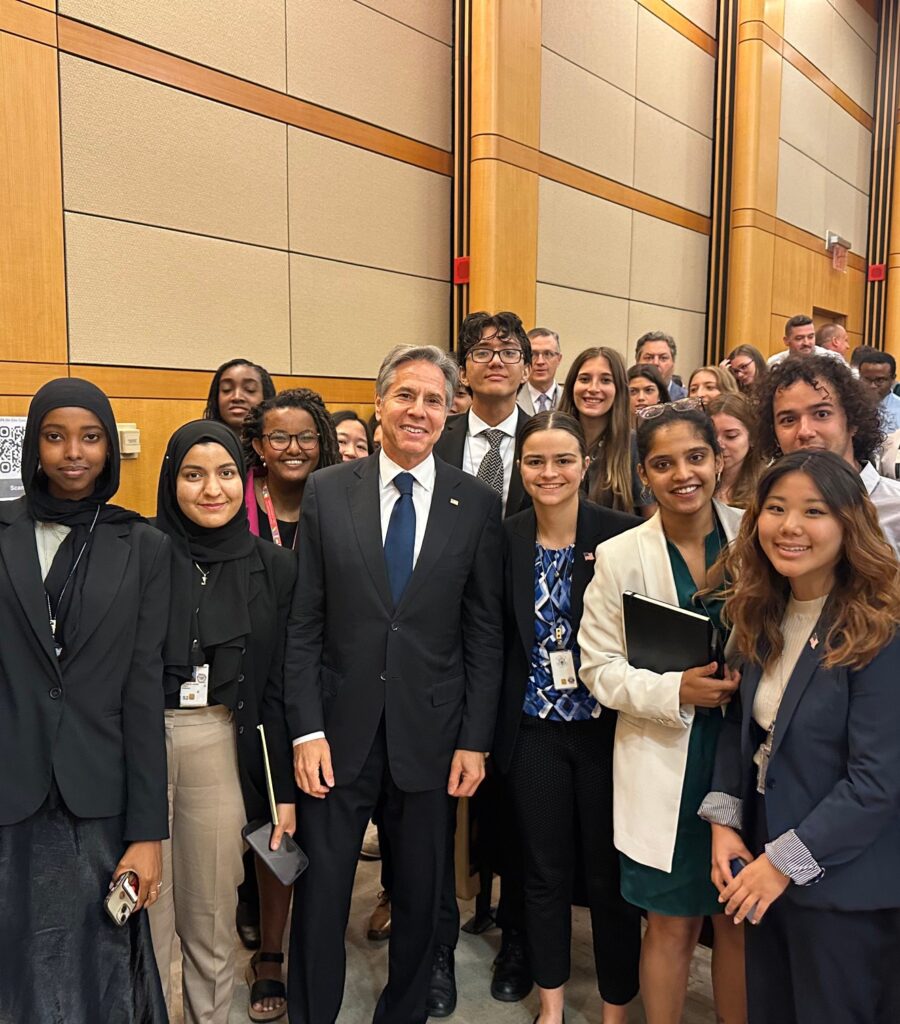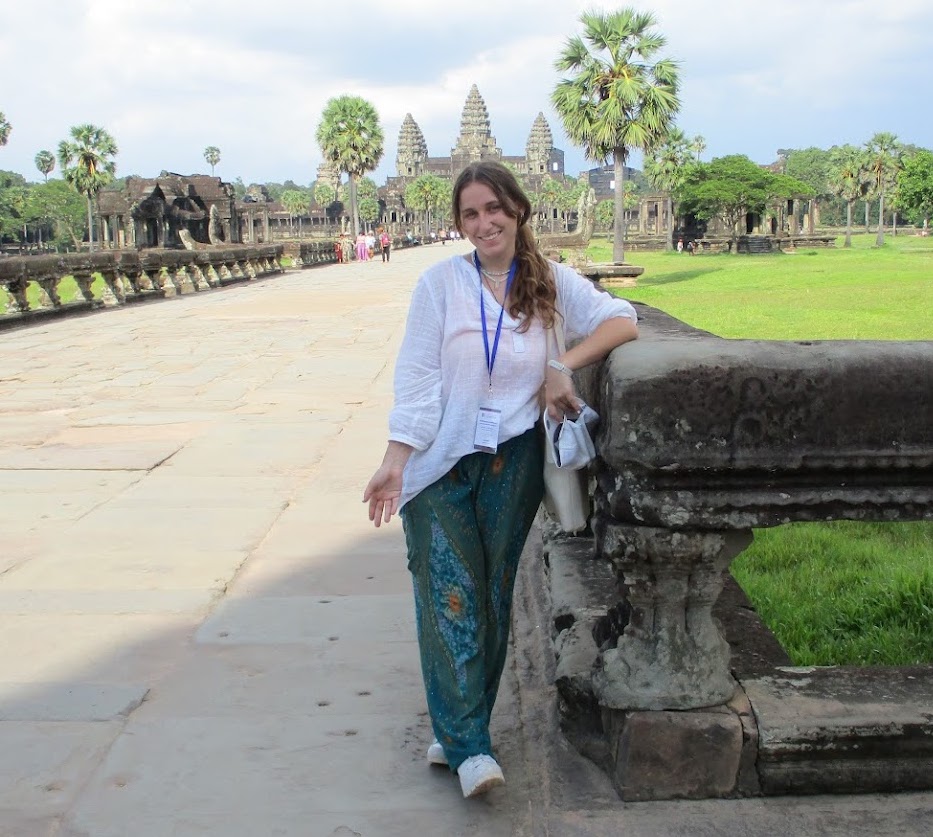
Three LMU students expanded their horizons this past summer by participating in international research and internship programs. Sabriya Seid ’25 participated in an Research Experience for Undergraduates (REU) in Kenya; Tanya Edquist ’23 was a fellow in the Center for Khmer Studies Junior Fellows Program in Cambodia; Lena Fisher ’24 completed her first summer as an intern with the U.S. Foreign Service Internship Program, the first LMU student to participate in this prestigious program. These research experiences and internship programs allowed the students to interact with diverse cohorts of students and to realize the importance of international education.
To Seid, participating in an international research program was a chance to gain research experience and immerse herself in an entirely different culture.
“International education is important to me because it’s good to see how people outside of your little bubble live life,” said Seid. “I think that [going abroad] is one of the best ways to help yourself learn more about the world. Conducting research abroad also helps you learn what other people in different countries are doing and what you can take away from their research.”
The students were supported by faculty mentors as well as the Office of National and International Fellowships (ONIF). Staff from ONIF amplify opportunities for international research and internships, and help applicants with their personal statements and application essays.
“Research Experiences for Undergraduates and internships are high-impact practices that contribute to student success,” said Cassidy Alvarado, director of ONIF. “Globally focused opportunities are also available across disciplines and build intercultural skills critical to an increasingly global world.”
Each of the students’ intensive summer programs helped prepare them for their careers and plans post-graduation. Seid, an Honors Program student majoring in biology and studio art, researched the optimal fertilization conditions for millet, which thrives in arid regions such as Kenya and can be used to make baby food formula. In a region that suffers from food insecurity, optimizing the production of formula could significantly improve child nutrition. After LMU, Seid plans to attend graduate school, with the goal of working in scientific illustration and bridging her two interests in biology and art.

The internship program has helped Fisher identify pathways for a future career in foreign service. The two-year program places students in an internship with a Department of State bureau in Washington, D.C., for the first summer. Then, in the second summer, students have a ten-week placement at a U.S. embassy or consulate abroad. Fisher’s summer internship at the U.S. Foreign Press Center brought her into contact with many Foreign Service Officers and opened her eyes to the variety of foreign service careers available.
“It was so valuable to see how the Department of State works,” said Fisher. “Because I was working with Foreign Press Center, I was interacting with a lot of foreign journalists who would come to our press briefings so I could see how they perceive American foreign policy, and then also how the U.S. communicates their foreign policy to journalists abroad.”
As a Center for Khmer Studies Fellow, Edquist spent six weeks in Cambodia, taking Khmer language classes, learning about contemporary Cambodian history and society, and working on a research paper about economic development in Cambodia. Her cohort was composed of five fellows from the United States, five from France, and five from Cambodia.
“The program had such an incredibly unique cross-cultural component,” said Edquist. “It was so interesting having a cohort of American, French, and Cambodian students and learning about the history that ties these countries together. There were so many opportunities to learn from one another.”

Edquist’s fellowship also included many opportunities for cultural immersion and visiting historically important sites within the country.
“My favorite trip was to Angkor Wat,” Edquist said. “Sitting at the top of Angkor Wat really makes you feel like a king. We also visited S-21 or Tuol Sleng, a former secondary school that was used as a prison camp by the Khmer Rouge regime. This was easily the most important part of my time in Cambodia because of the history of the Khmer Rouge.”
Seid’s REU similarly built in opportunities to experience the culture and natural beauty of her host country.
“My personal favorite trips were the safaris,” Seid said. “That was something I’d wanted to do pretty much my whole life, and I was just blown away. We were able to go to Masai Mara during the Great Migration. I looked outside the safari vehicle, and there were hundreds of thousands of wildebeests and zebras migrating. We also saw lions, giraffes, leopards, hyenas and rhinos. It was just incredible and definitely a memory I’ll never forget.”
As Fisher looks ahead to next summer and her international internship placement, she wants to stress that having international and cross-cultural experiences can be valuable to anyone.
“Any career can benefit from learning how to interact with people from other cultures, how to exchange and learn from the people around you. A lot of diplomacy is soft skills and people skills and I think building those interpersonal skills can benefit anyone in any career,” said Fisher.
To learn more about off campus research opportunities, visit ONIF’s website at https://academics.lmu.edu/onif/research/off-campusresearchopportunities/



